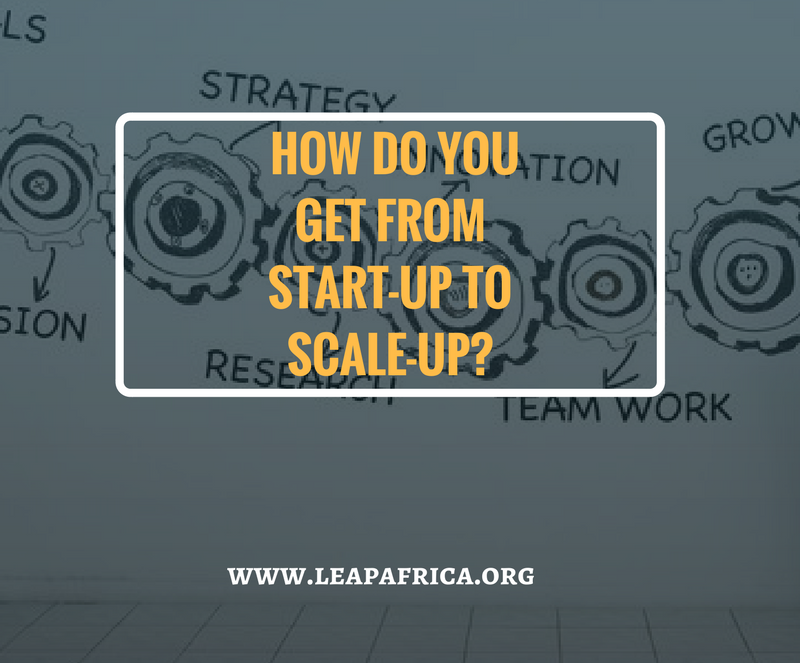
The need to scale-up, rather than startup, is now a key concern for entrepreneurs everywhere.
However, most executives who start a business or project fizzle more often than not once they’ve gotten their venture on its feet.
In an article published on World Economic Forum, Daniel Isenberg, Professor of Entrepreneurship Practice, Babson Executive Education, Babson College and Vincent OnyemahAssociate Professor, Babson College, believe that it’s not start-ups that matter – it’s growth.
We read that for entrepreneurial activity to translate into economic growth, all stake holders need to focus less on the “start” and “small” side of things and more on how companies of all ages, sizes and sectors can scale. Why? Because research clearly shows that it is relatively high-growth firms – what we call “scale ups” – that are the real generators of jobs, taxes and wealth. Contrary to the myth, small businesses and start-ups only generate these benefits if they then go on to grow. And historical perspectives on the growth of entrepreneurship from Israel to Bangalore to Silicon Valley shows that the critical path to prosperity paradoxically goes from scale up to start-up, not the other way around.
So how do you get from start-up to scale-up? What’s the “secret” behind the few companies that succeed? How do we increase the proportion of firms that survive and grow, particularly in places where job creation and growth are needed most?
Research reports from Barclays, with the business schools at Oxford and Cambridge, suggest that young businesses need the right skills and better funding opportunities in order to survive.
Also, growth-oriented entrepreneurs must have the aspiration to grow. You cannot expect that entrepreneurs will take the risk of expanding a company if they have no aspiration to do so. Expanding a company requires significant sacrifice, time and resources that many entrepreneurs cannot — or are not prepared to — invest. Indeed, “personal circumstances” is one of the most cited reasons for discontinuing a start-up project.
In Africa where entrepreneurship is growing and lifting economies around the continent, Policy makers may need to heed Daniel Isenberg advice on what can be done to empower more entrepreneurs to scale. He says ” policy-makers should stop calling for the creation of new businesses and prioritize helping firms of all ages, sectors and sizes to grow. There’s ample evidence that when they do so, it helps more than just the businesses in question – it also spreads prosperity deep into the community.
Read full article here.
On June 1, 2017, LEAP will host it’s annual CEO’s Forum. Part of the discussion for this year will outline some basic concepts, as well as practical steps or points to consider, when challenged with scaling up.



